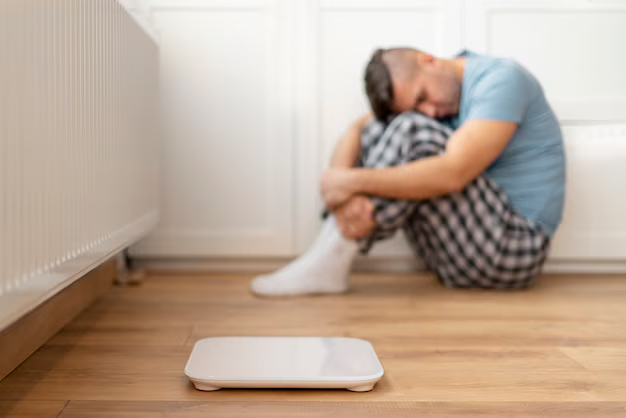Could Sleep Apnea Be Secretly Causing Your Weight Gain?
There’s an intriguing mystery that baffles both doctors and patients alike: the connection between sleep apnea and weight gain. It's a relationship often discussed, yet not fully understood by many. If you suspect that sleep apnea might be impacting your weight, you're not alone. Let’s dive deep to uncover this complex link, explore its nuances, and understand how you can manage its implications.
Understanding Sleep Apnea
What is Sleep Apnea?
Sleep apnea is a potentially serious sleep disorder where breathing repeatedly stops and starts. The most common type is obstructive sleep apnea (OSA), which occurs when throat muscles intermittently relax and block the airway during sleep. Central sleep apnea, though less common, involves the brain not sending proper signals to the muscles controlling breathing.
Symptoms to Watch For
Common symptoms of sleep apnea include:
- Loud snoring
- Episodes where you stop breathing during sleep, often noticed by another person
- Gasping for air during sleep
- Awakening with a dry mouth
- Morning headache
- Difficulty staying asleep (insomnia)
- Excessive daytime sleepiness (hypersomnia)
The Sleep Apnea and Weight Gain Connection
How Does Sleep Apnea Contribute to Weight Gain?
It’s a complicated interplay of physiological and behavioral factors that contribute to weight gain in individuals with sleep apnea. Here’s how:
Poor Sleep Quality and Metabolism
When you don’t get enough quality sleep, it affects your metabolism. Studies show that sleep deprivation can lower the rate at which you process glucose, leading to higher blood sugar levels and eventually, weight gain. Sleep apnea interrupts the sleep cycle repeatedly, leading to poor sleep quality.
Hormonal Disruption
Sleep apnea affects the body’s production of hormones like leptin and ghrelin, which control hunger and appetite. Ghrelin stimulates appetite, while leptin tells your brain when you're full. Sleep deprivation leads to a decrease in leptin and an increase in ghrelin, prompting you to eat more.
Stress and Cortisol Levels
Sleep apnea induces stress in the body, leading to elevated cortisol levels. High cortisol levels are associated with increased appetite and abdominal fat. This hormonal shift creates a conducive environment for weight gain.
Weight Gain Aggravating Sleep Apnea
A Vicious Cycle
Weight gain, especially increased neck or belly fat, can worsen sleep apnea. Here's why:
- Increased Neck Circumference: Excess fat around the neck can obstruct the airways, aggravating symptoms of OSA.
- Abdominal Obesity: Higher fat deposits in the abdomen can compress the chest and reduce lung capacity, which increases the chances of breathing disruptions.
Breaking the Cycle
It’s crucial to understand that managing weight can significantly improve sleep apnea symptoms. Here are some strategies:
Diet and Nutrition
Engage in a balanced diet rich in fruits, vegetables, whole grains, and lean proteins. Avoiding processed foods and sugary drinks can help mitigate weight gain, thereby alleviating some sleep apnea symptoms.
Regular Exercise
Physical activity not only helps in reducing weight but also improves sleep quality. Regular exercise strengthens the muscles, including those involved in breathing.
Other Contributors to Sleep Apnea
Genetics and Anatomy
Some individuals may have naturally narrow airways or enlarged tonsils and adenoids, contributing to obstructive sleep apnea irrespective of weight. Understanding these factors is essential in addressing OSA comprehensively.
Lifestyle Factors
Factors such as smoking, alcohol consumption, and use of sedatives can relax the airway muscles and worsen apnea symptoms. Lifestyle modifications can be a crucial component of managing sleep apnea.
Exploring Treatment Options
CPAP Therapy
The most common treatment for sleep apnea is Continuous Positive Airway Pressure (CPAP). This device helps keep your airways open while sleeping. It can significantly ameliorate symptoms and potentially aid in managing weight by improving sleep quality.
Weight Management Programs
Enrolling in weight management or nutritional counseling can provide the needed structure and motivation to lose weight. Often, losing even a modest amount can drastically improve apnea symptoms.
Surgery and Other Interventions
In cases where CPAP or lifestyle changes are not effective, surgical options may be considered to remove excess tissue from the nose or throat, or to reposition the lower jaw.
Taking Control of Your Health
Feeling empowered to take control of your sleep apnea is the first step towards alleviating weight gain. By understanding the intricacies of how sleep apnea affects weight, you can make informed decisions about your lifestyle and treatment options.
Practical Tips to Get Started
- Monitor Your Sleep: Keep track of your sleep patterns and consult a healthcare provider if symptoms persist.
- Adopt a Healthy Lifestyle: Focus on a diet rich in nutrients and regular physical activity.
- Consult Professionals: Seek guidance from nutritionists, sleep specialists, or health coaches to tailor a plan that works for you.
- Stay Consistent: Patience and consistency are key. Small, sustained changes in lifestyle can have a profound impact.
Awareness of these factors, coupled with a proactive approach to management, can help mitigate the cycle of sleep apnea and weight gain.
Summary 📝
- Understand the Connection: Sleep apnea disrupts sleep, altering hormones that control hunger and stress, contributing to weight gain.
- Vicious Cycle: Weight gain, particularly around the neck, can exacerbate sleep apnea, creating a vicious cycle.
- Manage Through Lifestyle: Focus on healthy eating, regular exercise, and lifestyle changes to manage weight and improve apnea symptoms.
- Leverage Treatment Options: Use CPAP therapy and consider professional advice for personalized management plans.
By integrating these insights and taking actionable steps, you can effectively address the effects of sleep apnea on weight and overall health. 🌟

Related Articles
- Can a Deviated Septum Cause Sleep Apnea
- Can Apple Watch Detect Sleep Apnea
- Can Losing Weight Cure Sleep Apnea
- Can Losing Weight Help Sleep Apnea
- Can Sleep Apnea Be Cured
- Can Sleep Apnea Cause Headaches
- Can Sleep Apnea Cause High Blood Pressure
- Can Sleep Apnea Cause Weight Gain
- Can You Have Sleep Apnea Without Snoring
- Do I Have Sleep Apnea
